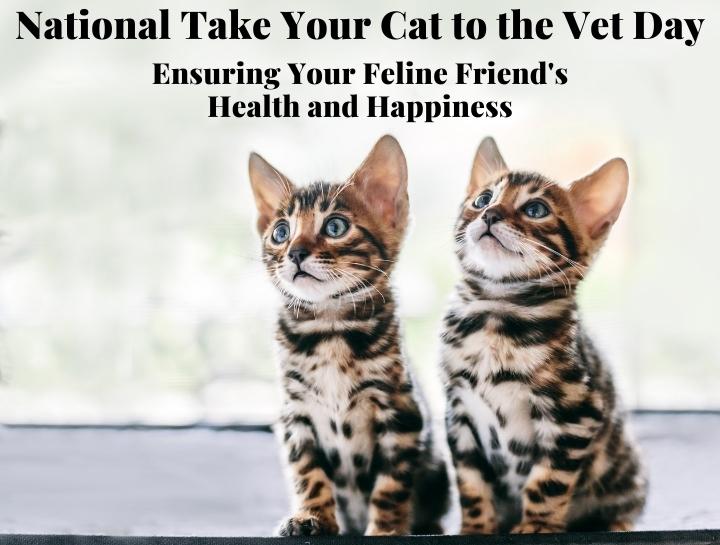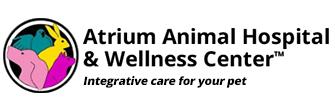National Take Your Cat to the Vet Day: Ensuring Your Feline Friend's Health and Happiness

As a responsible and caring cat owner, you want the very best for your feline companion. National Take Your Cat to the Vet Day reminds us of the essential role regular veterinary care plays in keeping our whiskered companions healthy, happy, and ready to conquer the world, one purr at a time.
Before arriving at Atrium Animal Hospital, note that it is crucial to bring your cat in an escape-proof enclosure, such as a carrier. This ensures their protection from potential accidents or injuries during the journey and guarantees a controlled and stress-free environment for their well-being and the peace of mind of both you and the veterinary staff.
Now, picture this: You and your cat have arrived at Atrium Animal Hospital and strut into an exam room, ready to conquer any health hurdles that come your way. Your veterinarian, equipped with a stethoscope and a friendly smile, is thrilled to see your cat. Next, your veterinarian will conduct a thorough examination, paying attention to various aspects of your cat's health. Here's what you can expect:
Muscular and Skeletal Health: Your veterinarian will feel for healthy muscle mass and check for any signs of joint pain or abnormalities, ensuring your cat's mobility and comfort.
Neurologic System Check: Particularly relevant for younger cats, this assessment can identify any birth defects or neurological issues. In older cats, it helps determine if cognitive function is affected.
Weight and Lifestyle Assessment: Your veterinarian will evaluate your cat's weight in relation to their age and lifestyle, ensuring they are maintaining a healthy body condition. Appropriate weight management plays a crucial role in preventing various health problems.
Lymph Nodes: Swollen lymph nodes can be indicative of a wound, virus, infection, or underlying illness. Your veterinarian will carefully examine these nodes to assess your cat's overall health.
Vital Signs: Monitoring vital signs such as temperature, pulse, and respiration is essential. Any abnormalities in these readings could be an early indication of illness, prompting further investigation.
Skin and Coat Condition: A thorough inspection of your cat's skin and coat can reveal signs of growths, infection wounds, and overall skin health. Detecting issues early allows for timely treatment.
Teeth and Mouth Examination: Dental health is critical for cats. Your veterinarian will examine your cat's teeth and mouth for gum disease, healthy teeth, and related infections, which can significantly impact their overall well-being.
Ears and Eyes Evaluation: Checking for infections, discharge, or abnormalities in your cat's ears and eyes is vital. Early detection and treatment can prevent discomfort and potential complications.
Cardiac and Respiratory Health: By listening to your cat's heart and lungs, your veterinarian can identify any irregularities that may point to underlying cardiac or respiratory issues.
Gastrointestinal Health: Assessing your cat's gastrointestinal system helps identify the causes of vomiting and/or diarrhea, allowing your veterinarian to address them appropriately.
Bloodwork: Annual bloodwork may be recommended to determine any possible issues that are not visible during the physical examination.
Remember, prevention is always better than cure. By taking your cat to the veterinarian regularly for a clean bill of health, you not only ensure their well-being but also gain peace of mind. Your feline friend depends on you to be their advocate for health, happiness, and longevity. Celebrate National Take Your Cat to the Vet Day by prioritizing your cat's veterinary care—a small investment for a lifetime of purrs and companionship.
To schedule your cat’s annual exam at Atrium Animal Hospital, call us today at (704) 542-2000!
